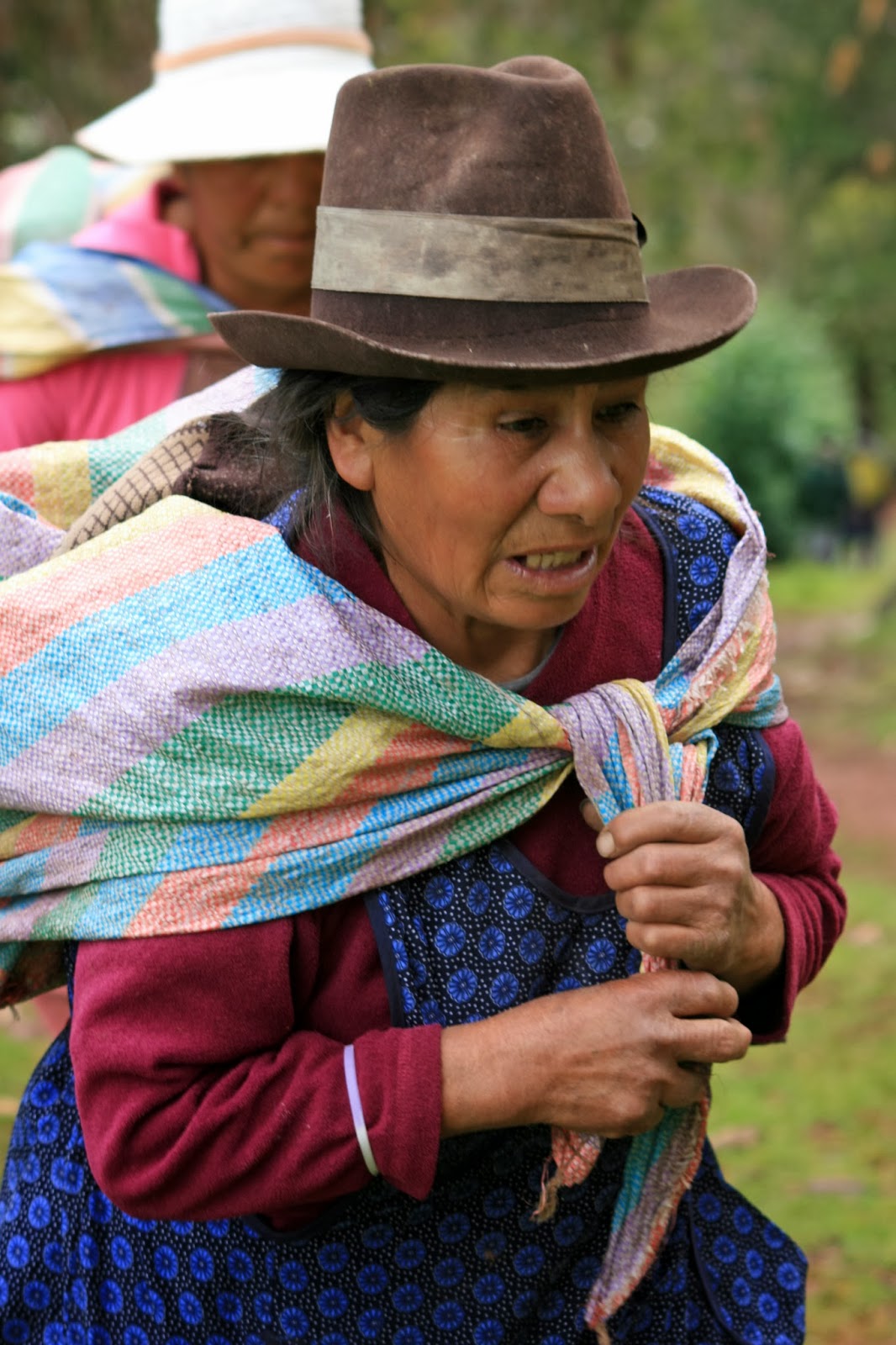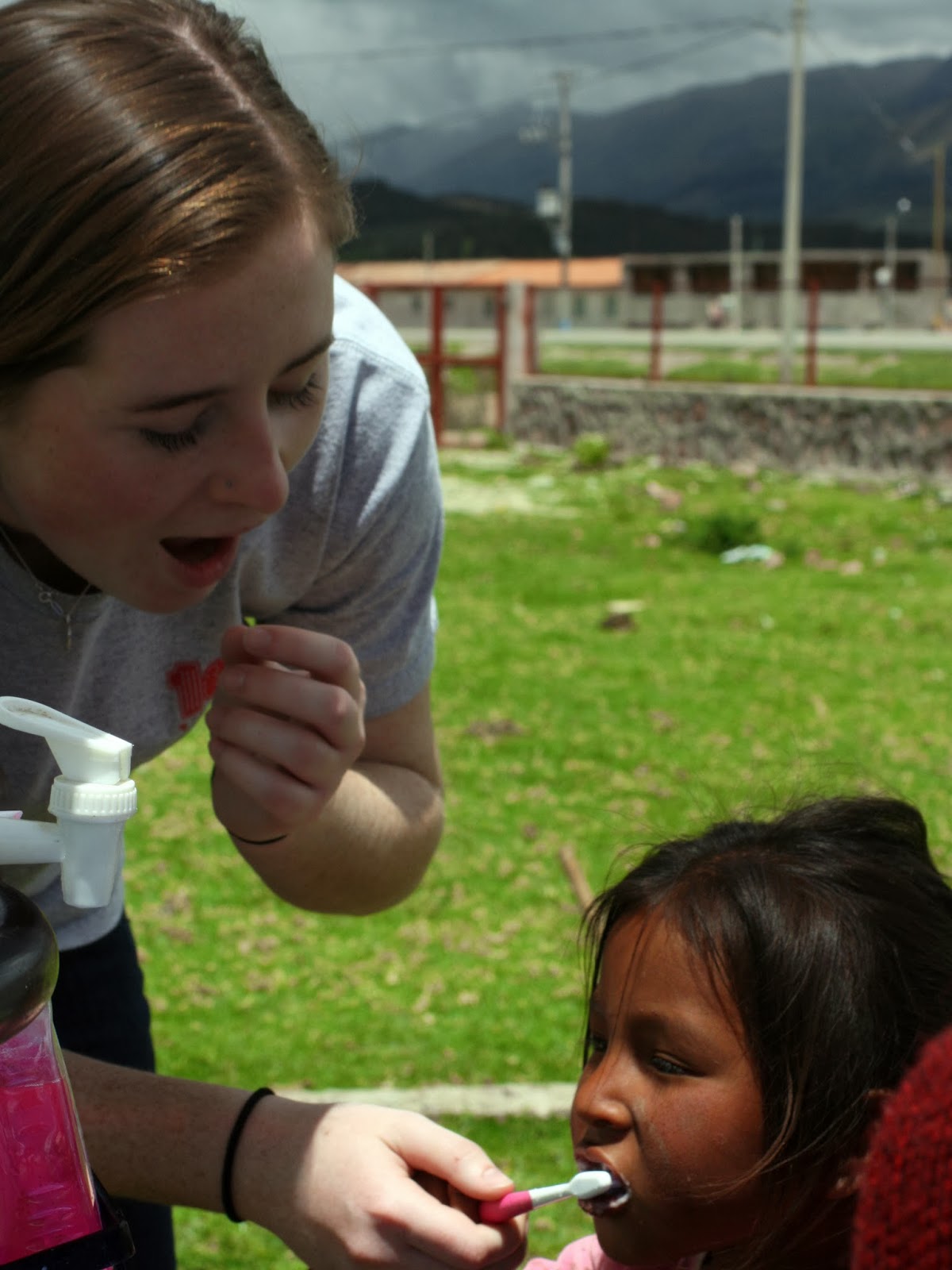In the previous two years of my travel blog silence, I have visited six countries, taken thousands of photographs, and scribbled dozens of vague or disparate thoughts about my experiences on little bits of paper jammed into the small, worn backpack I've dragged around the world. I'm giving myself a demerit badge for my inability to post with any reasonable frequency. And, sadly, I was using my own definition of reasonable rather than anyone else's just so I could lower my standard and, thereby, meet it. (I learned that trick by working at a university). But sometimes, even my standards aren't low enough.

Heed this warning: Don't ever get hooked on reading about my adventures. Even if it seems I've finally mastered the dedication to post, I promise continued dry spells during which I forget I even have this thing. Add six weeks to the time I remember I have it for password recovery. Then add a 1-10 more months because chances are it's not July or August, my "light" season. Besides, wouldn't it be better to have the actual interactions, tastes, smells, weather, experiences, feelings, frustrations, insights, and memories instead of my vaguely sensory recollection and analysis? Yes? Great! Let's go! No, really, where do you want to go? I'm in! Really. Not the kind of "no, really" I've heard before, but the kind that I really mean.
People often ask me the same series of questions about my trips: Who did you go with? Did you go by yourself? Why do travel alone? Do you like being alone? I think people actually know the answers to all of these questions and are actually just looking to say
I don't get it. Doesn't sound like fun to me.
 |
| Not a picture of me traveling alone. |
There are two reasons I have traveled alone more than with others. One, all y'all are lame. When I mention the possibility of a trip to someone, most people are YAY and YESYESYES! and we should go here, and then there, and there, and there, and s;lkdfjgs;ldkfjgaw;li!!!! Then sometime between this exciting fantasy of pinning mind-blowing destinations and driving to the airport, I become a party of one. Time, money, work, family, dogs, responsibilities, too much perishable food in the fridge, the possibility of missing the truly riveting book club meeting (but it's the one
I chose). If I waited for others to be ready to pull the trigger, I may have been to just a handful of places at this point in my life.
Before anyone gets defensive, let's work this through, for your sake and mine. I don't know whether this is pessimistic (I am SO young at heart and would be a hilarious old person; I've been holding onto jokes that are only ironic for an old lady to say for years already) or generous (I've always imagined I'd get taken out by a blood clot or a shark or something not age-related), but let's say I die when I'm 75. Let's also assume that I'm limited to two weeks of travel per year. As a matter of practicality, I need to categorize trips into 1) trips for old people, 2) trips for little people, 3) trips for rich people, and 4) trips for crazy people. And finally, let's assume that, when possible, destinations and experiences should be sought in order of most to least desired, just in case the universe t-rexes me or you or all of us.
 |
| It's even more sad when I remember that she's extinct and can no longer even struggle to put on her adventure hat. |
Here's a sample:
|
Crazy
|
Rich
|
Little People
|
Old People
|
33-40
|
Vietnam
Burma
Morocco
Turkey
Northern Lights
Belize
Trinidad
|
Galapagos Islands
Greece
Croatia
Italy
Uganda
Zambia
Kenya
|
|
|
41-50
|
|
|
Bald Head Island
Zion/Bryce
Glacier National Park
Austin
|
|
51-60
|
|
|
Santa Fe
Savannah
Monterey
|
|
61-70
|
|
Madagascar
Southern Africa
New Zealand/Australia
Cuba
|
|
Prague
Budapest
Chile
Argentina
|
71-75, then die
|
|
|
|
London
Key West
|
I can't be dragging children through a lawless country, bribing the police to not kidnap and traffic them. I can't be dragging myself on overstuffed buses that toss passengers around on unpaved roads after my third hip surgery. I can't spend a dependent's college tuition getting to the world's most remote locations no matter how "valuable" that Easter Island passport stamp may seem. On top of these constraints, I've already maxed out my travel before age 40 with the crazy list and haven't even gotten to the rich list. And, I made this list carelessly and quickly- I didn't even check Pinterest to remember everywhere I want to go! I know barely anything of my own aspirations without Pinterest!
Bottom line, the clock is ticking on this sweet, sweet life. I can't wait for you to be ready to pack your adventure hat. (See T-Rex for adventure hat style ideas).
Two (remember how all of that was just the first reason I travel alone?), I know it's good for me. I'm an extrovert to my core. I suffer from Fear of Missing Out. I love being around people all the time and don't need time to myself. I'm flexible about most things and don't like making decisions, sometimes to the point of complete paralysis. I'd really rather do what you want to do, especially if it saves me from having to think about what I want to do. I try hard not to inconvenience others or myself with my own needs and wants. From silly to biological, meeting one's own needs is for suckers.
During my first trip abroad alone, I tested out this Don't Make Decisions mantra. I landed in Nadi, Fiji very early in the morning and boarded a public bus to Suva, the capital on the other side of the island. I was just doing what I was told by my hosts- I had no idea what was about to happen, but I probably didn't need to do anything except sit on a bus, right? The bus drove and drove and drove along the beautiful Queens Highway, the single, coastal road that connects the east and west sides of the island.
After a few hours, the bus stopped in a small town, and everyone got off. Except me. What would happen if I got off? Would I lose my seat? Would someone take my luggage? Would they leave me behind? What would I do off of the bus anyway... Eat? Pee? Eating didn't seem all that important considering how difficult it would be for me to figure out what to buy and how to buy it. Compared with doing nothing, peeing increased the risk I'd be abandoned in the town. So I sat there.
And then, as if the universe knew how hungry and stupid I was, people started walking up to the windows selling small, but unfamiliar snacks. What were they selling? Are these normal American peanuts or some weird, gross, unacceptable Fijian peanuts? Was it even proper to buy a snack from a random person outside of the window or were these black market peanuts? Did they have the necessary permits?! So I sat there.
Everyone else got back on the bus, and we drove for a few more hours. The scene from the first town played out again. Slightly hungrier and more wiggly than before, the universe offering me an opportunity to learn from my previous mistakes, I was still too paralyzed to get off the bus. The risk of those peanuts containing some kind of meat was too high, especially in a heavily vegetarian, English-speaking country in which I could probably not very easily inquire about the meatiness of the street peanuts.
After about eight hours, we finally arrived at a bus depot in Suva. I was supposed to get a cab and give the driver the address of my host. But, could I deviate from this path to get a quick bite to eat? Would the city of Suva have any food? I spotted a bakery and decided to investigate whether they had food.
Me: (Looking at rolls with minimal aspiration for actual nutrition) Do you have, like, plain rolls?
Baker: Yes.
Me: Oh, okay. Do they have any meat in them?
Baker: What?
Me: Are they just, like, plain?
Baker: Yes.
Me: Great, I'd like one of the plain ones. With no meat.
(As an aside, this fear of meat rolls seems entirely irrational, but, in fact, foreshadows an unfortunate translation error that occurred years later in Costa Rica: the jam croissant.)
It probably wasn't okay to eat (meatless) rolls on the street or in cabs in their culture, so I waited. I hailed a cab and got in, with a (meatless) roll in a bag smooshed in my fist. I arrived at my host family's house and settled in. In the two minutes that I took my eyes off of my (meatless) roll to pee my life's longest pee, four million of the nearest ants sensed how delicious it would be to such an incredibly hungry person and moved in for a taste. When the disappointment of losing my (meatless) roll this way set in, tears of frustration and exhaustion and homesickness streamed down my face.
The next few weeks brought many firsts: first attempt at a cold, outdoor shower and, subsequently, first attempt to go almost a week without a shower and, subsequently, first water-heated-on-a-fire-and-dumped-on-me-bowl-by-bowl shower; first decision about what to do when peeing has already occurred and toilet paper is not provided; first independent execution of a vague project assignment and literally no skills or ideas to work with. Over time, the what-was-I-thinking regret of traveling alone to Fiji gave way to a shaky, albeit undeserved sense of independence and bravery. These and other weird situations are the norm of international travel, but reacting with flexibility and resourcefulness is the priceless take-away skill.

Maybe I should not admit that I was 24 when this happened. I have known so many people who have experienced much more of the world than I had at this age, living, studying, working, and volunteering abroad. I was a year away from finishing my PhD, I had independently taught a few hundred undergraduates, and I had a growing list of personal and professional interests and accomplishments. But, I couldn't feed myself, bathe myself, or otherwise figure out what to do with myself without tears, blunders, and doubt.
So this is why I value traveling alone: It serves as a periodic recertification of my independence and dauntlessness, a check on my ethnocentrism, and forced decisiveness, introspection, and self-care in a mind otherwise clouded with the demanding noise of others' wants and needs.





























